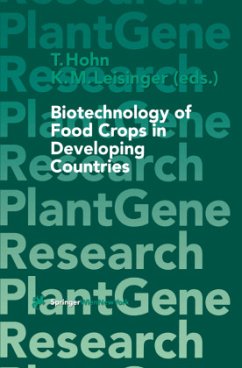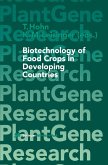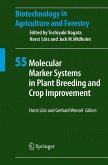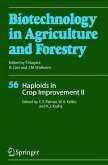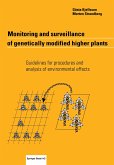Recent advances in gene technology, plant transformation, and the growing knowledge of DNA sequences of plants as well as of their most important parasites and symbionts offer many interesting prospects for the breeding of new crop varieties. This was not only recognized by the major seed companies, but also by the governments of developing countries and by worldwide foundations supporting their agriculture. The know-how gained by the seed companies on crops important for the agricultural industry in developed countries could easily be provided for free to the international and national organizations dedicated to development of crops important in the third world. Results obtained worldwide become easily available to everybody through the scientific literature. Likewise, agricultural research in, e.g., the USA or Europe profits from the natural plant gene pool available in the third world. All this definitely provides for the possibility of fast change, new prosperity and securityof food supply in the whole world, if properly applied. The fast development also asks for ethical and sociopolitical considerations, whereby not doing the right can be as much a mistake as doing the wrong.
"... As the chapters are written by most recognised experts of their respective fields excellent overviews on the recent level of gene technology applied to food crops can be obtained easily. A book for everyone really interested in the application of gene technology to plants, not only in developing countries !" Lebensmittel und Biotechnologie "This book achieves a good balance of background scientific information on food crops in developing countries and information on the social environment which has given these crops their importance to a particular society ... It is a strength of this book that the scientific chapters also attempt to cover the socio-political aspects ..." BioTeCH forum "The first chapters of the book discuss the ethical and socio-political aspects of crop improvement ... It is a strength of this book that the scientific chapters also attempt to cover the socio-political aspects ... presented in the early chapters. For most of the crops discussed ... the analysis of the science is accompanied by a discussion on risk assessment, biosafety and programs for farmer participation in defining goals and priorities of research programs." BIO WORLD

